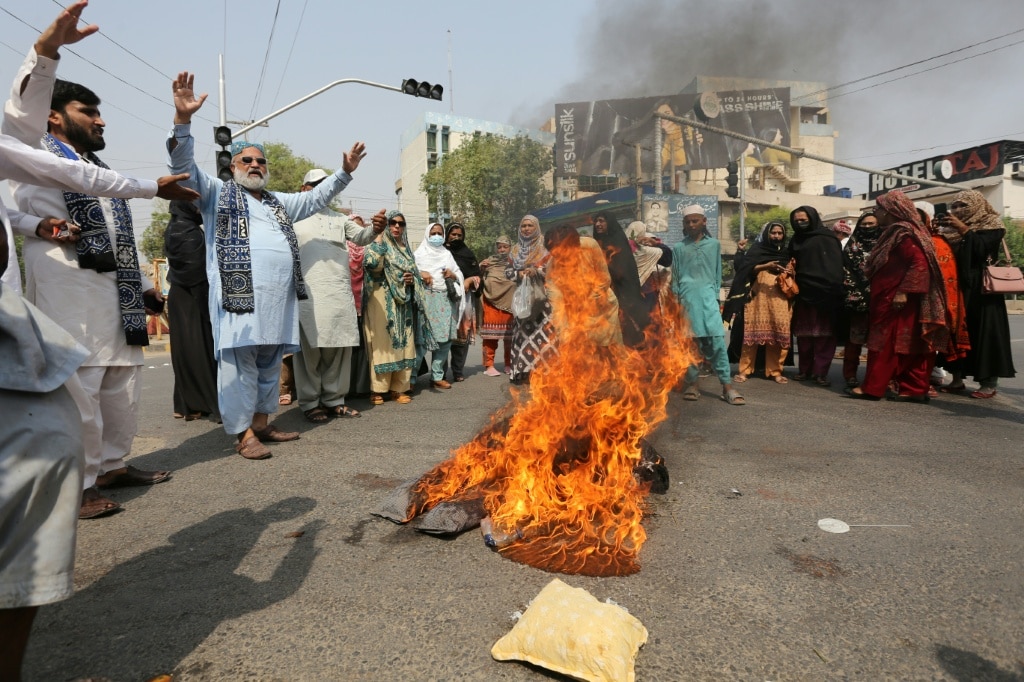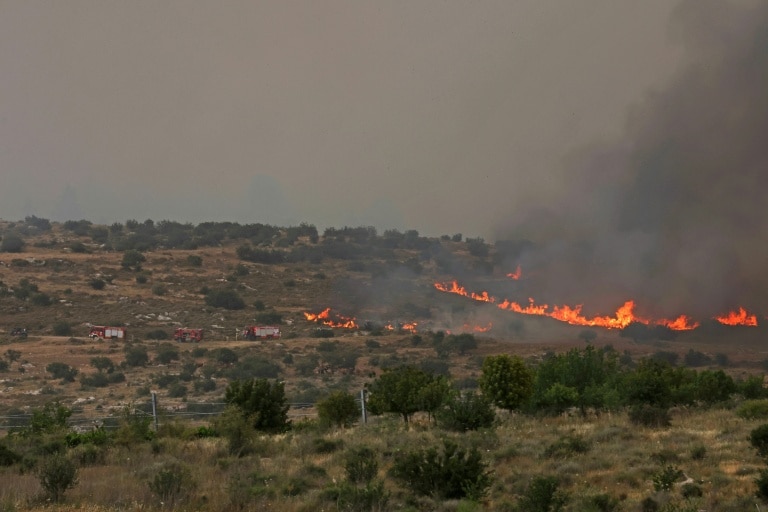Religious schools close in Pakistani Kashmir as tensions rise with India
Religious schools close in Pakistani Kashmir as tensions rise with India

Authorities in Pakistan-administered Kashmir shut more than 1,000 religious schools Thursday over fears of possible military action from India in retaliation for last week's deadly attack.
India blames Pakistan for the gun attack that killed 26 people on April 22 in Indian-administered Kashmir, with Prime Minister Narendra Modi giving his military "complete operational freedom".
US Secretary of State Marco Rubio late Wednesday separately called India's top diplomat Subrahmanyam Jaishankar and Pakistan Prime Minister Shehbaz Sharif to "de-escalate tensions and maintain peace and security in South Asia", the State Department said.
Denying involvement in the attack, Islamabad says it has "credible evidence" that India is now planning an imminent military strike, vowing that "any act of aggression will be met with a decisive response".
Rubio "urged Pakistani officials' cooperation in investigating this unconscionable attack", said spokeswoman Tammy Bruce.
India's foreign minister said after the call that the attack's "perpetrators, backers and planners must be brought to justice".
Fearing a military escalation, Pakistani authorities shut more than 1,000 religious schools in Pakistan-administered Kashmir.
"We have announced a 10-day break for all madrassas in Kashmir," said Hafiz Nazeer Ahmed, head of the local religious affairs department.
A department source said it was "due to tensions at the border and the potential for conflict".
On Thursday, New Delhi reported the seventh straight night of small arms gunfire between the two sides at the heavily militarised Line of Control, the de facto border.
- 'Constant fear' -
Muslim-majority Kashmir, a region of around 15 million people, is divided between nuclear-armed Pakistan and India which have fought several wars over the disputed territory.
About 1.5 million people live near the ceasefire line on the Pakistani side, where residents are readying simple, mud-walled underground bunkers -- reinforced with concrete if they could afford it.
"For one week we have been living in constant fear, particularly concerning the safety of our children," Iftikhar Ahmad Mir, a 44-year-old shopkeeper in Chakothi on the Line of Control (LoC), told AFP.
"We make sure they don't roam around after finishing their school and come straight home."
Emergency services workers in Muzaffarabad, the main city in Pakistan-administered Kashmir, have also begun training schoolchildren on what to do if India attacks.
"We have learned how to dress a wounded person, how to carry someone on a stretcher and how to put out a fire," said 11-year-old Ali Raza.
- Tit for tat aggression -
Since the attack -- the deadliest in Kashmir on civilians in years -- India and Pakistan have exchanged tit-for-tat diplomatic barbs and expulsions and shut border crossings.
Indian police have issued wanted posters for three men suspected of involvement -- two Pakistanis and an Indian -- who they say belong to the Pakistan-based Lashkar-e-Taiba, a UN-designated terrorist organisation.
They have announced a two-million-rupee ($23,500) bounty for information leading to each man's arrest and carried out sweeping detentions seeking anyone suspected of links to the attackers.
New Delhi on Wednesday closed its airspace to Pakistani planes, after Islamabad banned Indian planes from overflying.
India and Pakistan have fought over the Himalayan territory since the violent end of British rule in 1947.
Rebels in the Indian-run area of Kashmir have waged an insurgency since 1989, seeking independence or a merger with Pakistan.
The worst attack in recent years in Indian-run Kashmir was at Pulwama in 2019, when a suicide bomber rammed a car packed with explosives into a security forces convoy, killing 40 and wounding 35.
Indian fighter jets carried out air strikes on Pakistani territory 12 days later.
burs-ecl/stm/pst



